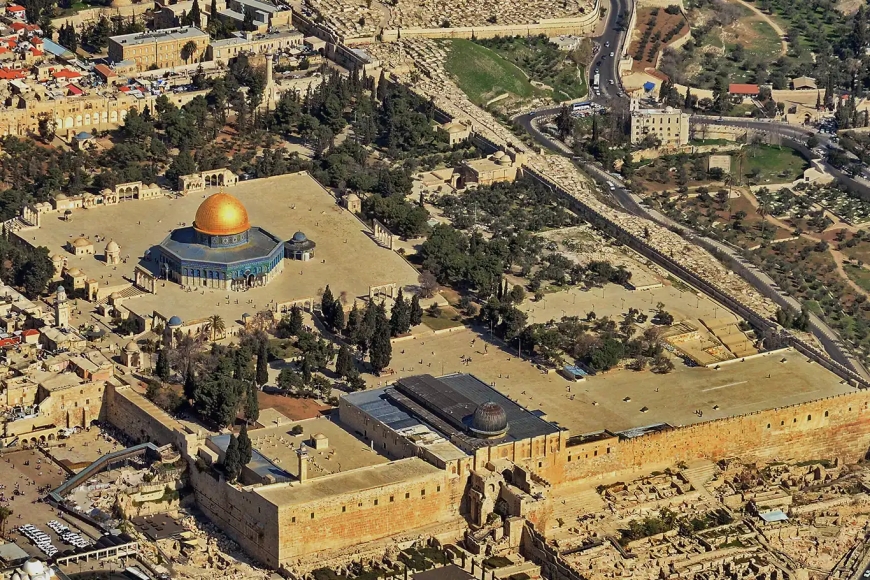The Legacy of International Quds Day After Four Decades
The spirit of resistance against hegemony and Zionism has proliferated globally, particularly within the Islamic world, spurring new grassroots movements across West Asia.

Prior to the Islamic Revolution, the Israeli regime and its international supporters had systematically intensified crimes against Muslims, pushing the Palestinian cause to the brink of obscurity. The betrayal and collusion of certain Arab leaders with the global hegemonic order and global Zionism compounded the suffering of the Islamic Ummah, particularly the oppressed Palestinian people. Imam Khomeini’s unwavering support for the Palestinian cause—marked by his strategic vision to popularize and Islamize the struggle against the Israeli regime, exemplified by designating the last Friday of Ramadan as Quds Day—ignited a beacon of hope across Islamic societies. Today, after over four decades of sustained public mobilization against the Israeli aggression, the global groundwork has been laid to demand the liberation of Al-Quds.
As the late Imam Khomeini emphasized, “Quds Day is not confined to Palestinians or Muslims alone; it is a global day of unity—a day when the oppressed confront the oppressors, when nations subjugated by American and other forms of tyranny rise. It is a day for the oppressed to arm themselves with resolve, to humble the arrogant powers.”
Indeed, the Islamic Ummah’s successive victories against global hegemony and Zionism across multiple fronts—particularly the expanding frontiers of Islamic resistance—are intrinsically tied to the enduring influence of International Quds Day. Below, we examine key outcomes of this legacy:
Formation of the Axis of Resistance
The spirit of resistance against hegemony and Zionism has proliferated globally, particularly within the Islamic world, spurring new grassroots movements across West Asia. Groups such as Iraq’s Popular Mobilization Forces (al-Hashd al-Sha’abi), Afghanistan’s Fatemiyoun Division, Pakistan’s Zainabiyoun Brigade, Syria’s volunteer forces, and Yemen’s Ansarullah have emerged as vital nodes of popular resistance. Initially centered on defending Palestine, the Axis of Resistance has expanded in response to evolving regional conflicts. Nations once perceived as vulnerable to unchecked aggression—Iran, Lebanon, Iraq, Syria, Yemen, Afghanistan, and Pakistan—now stand united, transforming any attack on one into an assault on all.
Exposing the Israeli Regime’s Criminal Nature
The Israeli regime’s attempts to normalize relations with Islamic nations have been starkly undermined by its ongoing crimes, particularly following the Al-Aqsa Storm operation. While some regimes maintain covert ties with Israel, Muslim populations worldwide have resoundingly rejected normalization. The regime’s identity as a strategic adversary of the Islamic Ummah has been laid bare, eroding its façade of legitimacy.
Foiling Efforts to Erase Palestine from Global Discourse
Despite Western-backed Israeli efforts to relegate the Palestinian cause to oblivion, the regime’s escalating brutality has only amplified global attention. Palestine remains a priority for international media, civil society, and NGOs, ensuring its centrality in global justice movements.
Internal Divisions and Crises Within the Israeli regime
Decades of occupation, apartheid, and systemic rights violations against Palestinians have exposed the moral and strategic bankruptcy of the Zionist project. The regime’s reliance on territorial expansion and repression has failed to secure its legitimacy, even among its own populace. Mounting protests in occupied territories and ideological fractures within Israel’s leadership underscore its deepening isolation.
Conclusion
International Quds Day has galvanized a transnational resistance movement, uniting the oppressed against tyranny while unmasking the contradictions of Zionist colonialism. As Imam Khomeini foresaw, this day transcends borders—it is a rallying cry for justice, a testament to the power of collective defiance, and a catalyst for the inevitable collapse of oppression.
By: H. Za’ïm-Bashi













































